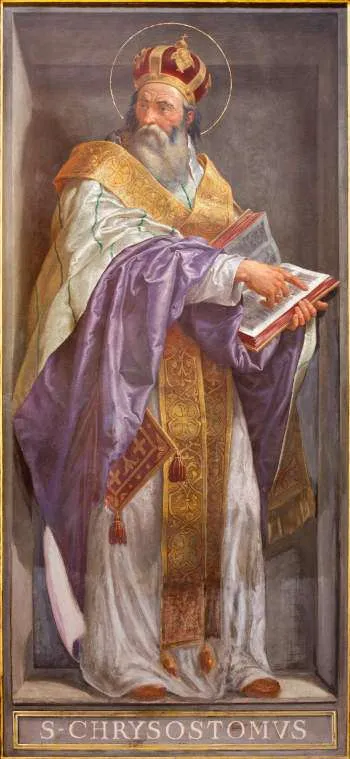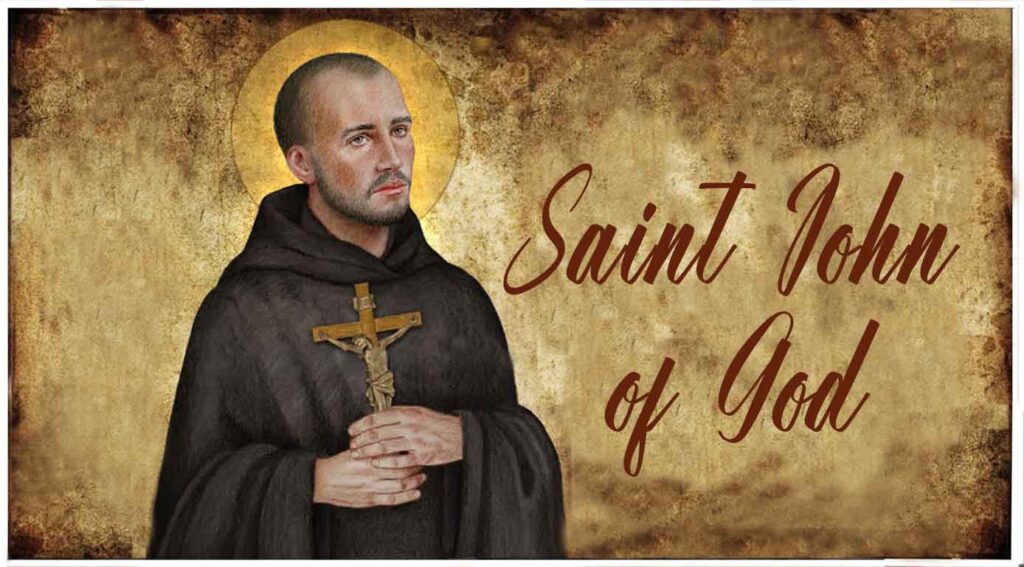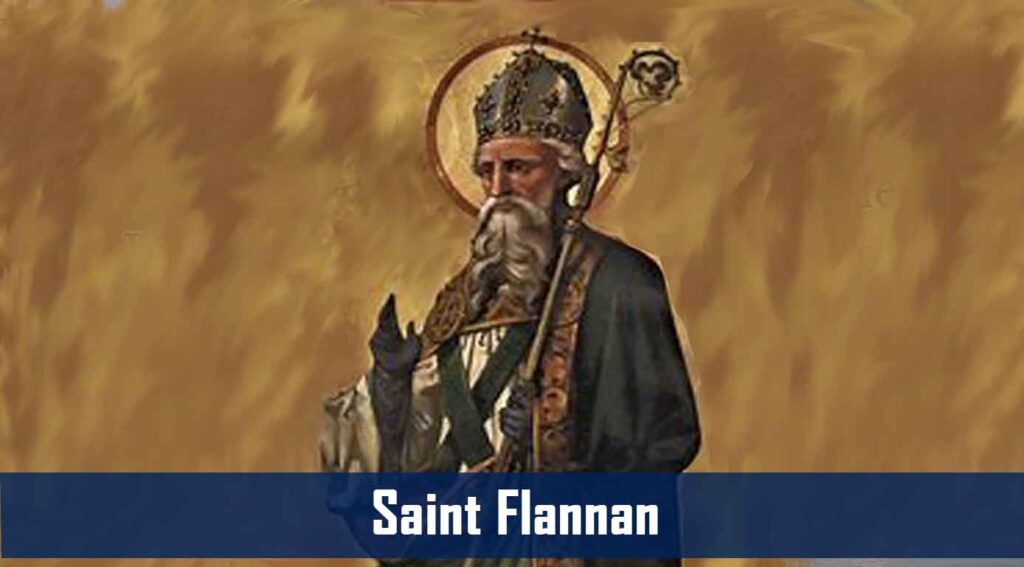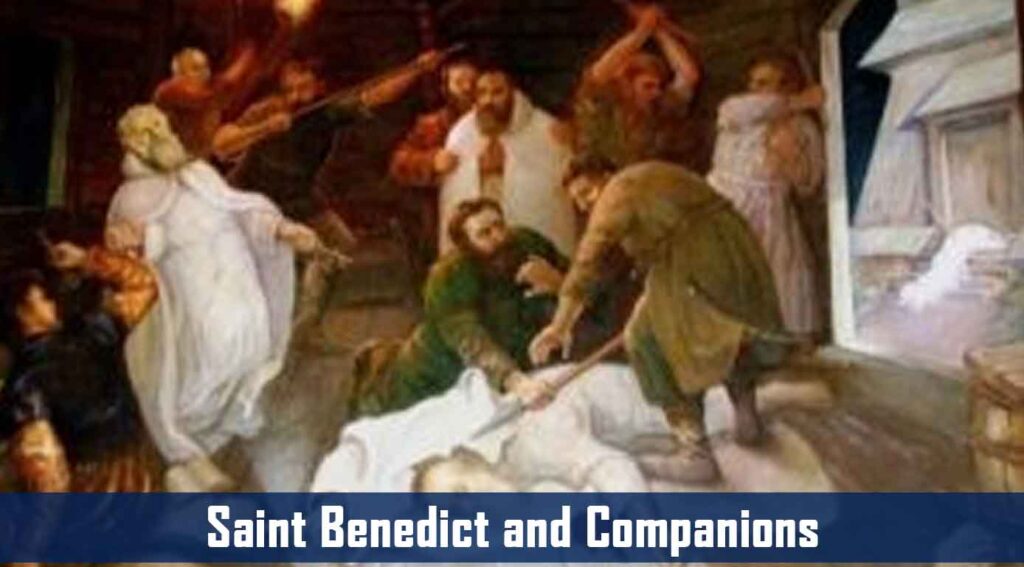c. 347–407; Patron Saint of preachers, orators, lecturers, and public speakers; Invoked against epilepsy; Pre-Congregation canonization
Saint John Chrysostom was born as John of Antioch. “Chrysostom” is a title attributed to him, meaning “Golden Mouth,” an honorific Greek title emphasizing the power of his preaching and writings. He was born in Antioch, modern-day Turkey, to Christian parents. His father was a high-ranking military officer who died shortly after John’s birth. John’s twenty-year-old widowed mother opted not to remarry, choosing instead to devote herself entirely to raising her son and John’s older sister.
Antioch was an important city within the Roman Empire at that time. It was one of the first cities outside of Jerusalem where the Christian Church was established. The Acts of the Apostles tells us that shortly after Christians began preaching in Antioch, Saints Paul and Barnabas arrived and strengthened the Church. Tradition holds that Saint Peter was the first bishop of Antioch before traveling to Rome. The Bible also states that “it was in Antioch that the disciples were first called Christians” (Acts 11:26).
By the time of John’s birth, Christianity had been legalized in the Roman Empire. Although there were many Christians in Antioch, it remained a diverse city with various religious beliefs, including Greek paganism, which significantly influenced its learning and culture. There were also Roman, Syrian, and Jewish populations and influences. The city boasted beautiful temples, theaters, an aqueduct, and a marvelous central street adorned with marble and colonnades.
As a youth, John received a comprehensive Greek education in the classics under Libanius, a pagan rhetorician who was one of the most famous teachers of his time. John studied Greek literature and philosophers, such as Plato and Aristotle, among others. Libanius, firmly rooted in Greco-Roman pagan religion and culture, later said that John would have been one of the greatest pagan orators and philosophers of the time, “if the Christians had not taken him from us.”
Around the age of twenty, John met Bishop Meletius, a man of stellar character and intelligence, and a powerful preacher. Over the next three years, John abandoned his pagan studies and began devoting himself to the study of Scripture, the ascetic life, and prayer. He was baptized, became a lector, and underwent a profound conversion. Feeling drawn to a life of greater solitude and prayer, he became a hermit, living in a cave near Antioch, where he embraced extreme fasting and other ascetic practices, and studied the Bible continuously—allegedly memorizing most of it—for several years. After about eight years as a hermit, John’s health was compromised from extreme fasting and penance, and he returned to Antioch to recover.
In Antioch, around the year 381, when John was about thirty-three years old, he was ordained a deacon. His years of prayer, Scripture study, and penance prepared him well for this time of more public service in the Church. About five years later, he was ordained a priest and spent around eleven years in Antioch in a very fruitful ministry. During this period, he wrote most of his sermons and commentaries, many of which still exist. His writings—containing profound works of dogmatic, moral, and historical teachings from the early Church—reveal a deep understanding of the Sacred Scripture. They are practical, relevant, and bold, never shying away from condemning prevalent sins, while being deeply pastoral in nature. He became well known and highly influential, his fame extending beyond Antioch.
At that time, Bishop Flavian was Bishop of Antioch. Many presumed that Father John would be his successor. However, in 397, the Archbishop of Constantinople died, and soon after, the Roman Emperor—to avoid causing an uproar in Antioch—secretly sent for Father John, appointing him as the archbishop’s successor. He was ordained as Archbishop of Constantinople by the Patriarch of Alexandria in the presence of many other bishops and prominent churchmen.
Constantinople was the capital of the Eastern Roman Empire and the most important archbishopric in the East. Archbishop John’s powerful position brought with it much wealth, prestige, and power. However, he immediately eliminated many of the extravagances that were commonplace, lived in simplicity, cared for the poor, railed against sin, rooted out abuses among the clergy, and continued his fiery preaching. As the Roman Empire had only recently become Christian, much of the pagan culture and lifestyles remained. The new archbishop sought to create a new civilization and culture based on Scripture. His sermons offered clear moral and spiritual guidance on how to live and what society as a whole should embrace. He especially preached against the materialism and extravagances of the imperial court. He quickly gained the respect of many citizens but also made enemies who felt he was too strict and took offense to him. This was especially true of those living luxurious and immoral lives, including Empress Eudoxia.
In the year 403, through the schemes of the empress, Archbishop John was falsely accused of heresy and cruelty to the empress, deposed, and exiled. However, due to a sudden natural disaster that damaged the imperial palace, along with a revolt among the people, he was recalled for fear of God’s wrath. Before long, however, he was exiled again because he refused to abandon his fearless preaching. While in exile, he remained hopeful he would return and regularly wrote to his people. The pope and the Western Roman Emperor tried to intervene, but to no avail. After three years in exile, he was ordered to be taken to the edge of the Roman Empire where he would be even more isolated. Due to harsh conditions on the journey and the cruelty of the soldiers that exacerbated his already poor health, he died en route.
Saint John Chrysostom was a convert, a holy deacon, an influential priest, an exceptionally consequential archbishop, and a prolific writer. This latter quality ultimately earned him the distinction of being a Doctor of the Church. In addition to his pastoral work, he left behind about 700 sermons, hundreds of letters, commentaries on Scripture, theological treatises—including important teachings on the Eucharist and priesthood—and other writings that remain influential today.
As we honor this “golden-mouth” preacher and teacher of the faith, ponder your own need for clear, relevant, and convincing teachers of the faith. As you do, reflect upon ways that you can better expose yourself to the wealth of catechetical insights within our Church to help you grow in your own faith. By actively seeking out good teachers, preachers, and writings, we allow God to form us and draw us closer to Himself.
Source: https://mycatholic.life/saints/saints-of-the-liturgical-year/september-13st-john-chrysostom/







